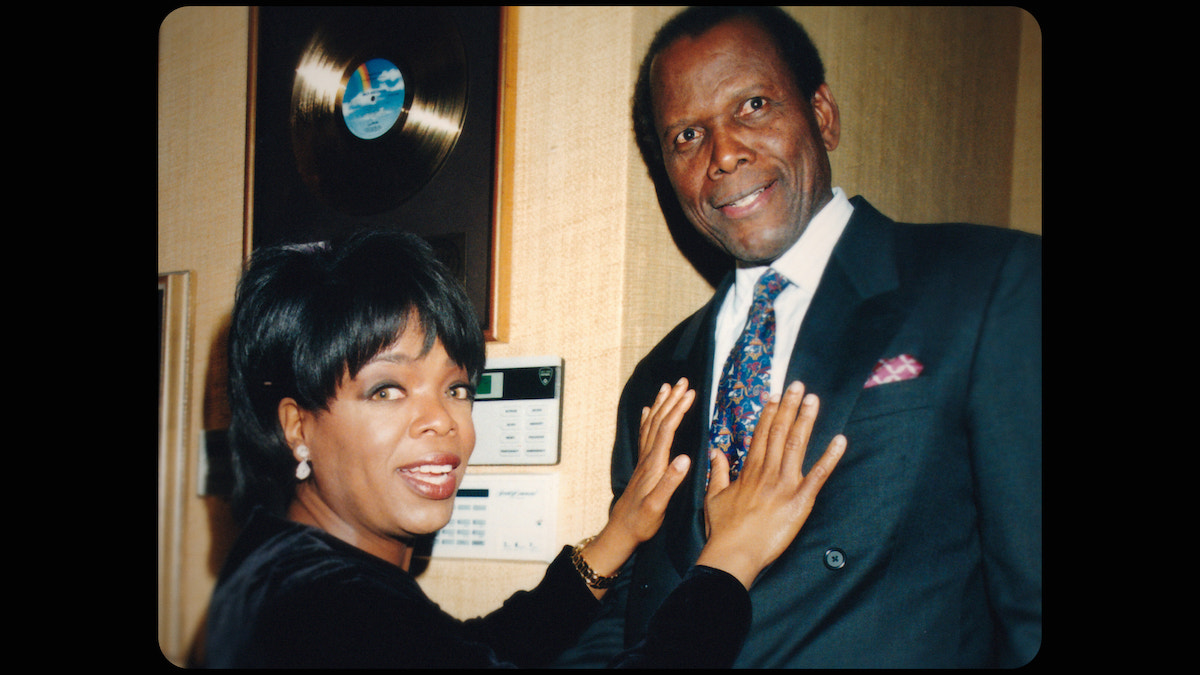Oprah, Sidney, and Santa Barbara International Film Festival
Oprah Winfrey, Derik Murray, and Reginald Hudlin Share Their New Documentary About Sidney Poitier

Oprah Winfrey, Derik Murray, and Reginald Hudlin Share Their New Documentary About Sidney Poitier


As far as I’m concerned, Oprah Winfrey is about as close as we get to magic in this oh-so-very-human world of ours. It turns out that the late Sidney Poitier — her dear friend and the subject of an Oprah-produced documentary Sidney, which screened at Santa Barbara International Film Festival’s Cinema Society last week — had some magic of his own going on. And it was a lot more than just the considerable movie magic going on up on the screen.
The documentary, an Apple TV+ production which is currently available on the network, features film and news footage, as well as candid interviews with Denzel Washington, Halle Berry, Robert Redford, Lenny Kravitz, Barbra Streisand, Spike Lee, Oprah herself, and many more less famous but no less interesting folks, including both of Poitier’s wives and all five of his living daughters (Beverly, Pamela, Sherri, and Gina (who died in 2018) with his first wife Juanita Hardy; Anika and Sydney with his second wife Joanna Shimkus).
Directed by Reginald Hudlin (House Party, Boomerang) and co-produced by Derik Murray (Facing Ali, I Am Richard Pryor), both of whom appeared with Oprah after the screening for a Q&A with SBIFF Executive Director Roger Durling, the film is a fascinating look at a true American success story which took place during some key moments of the Civil Rights Movement and played an important role in upgrading the type of Black representation we see on screen.
Poitier grew up in great poverty, the son of farmers in the Bahamas who had never even seen a mirror in the first ten years of his life. He didn’t know what he looked like, or that other people didn’t look the same as he did, until he immigrated to the United States in his early teens.
Completed shortly before Poitier’s death in January of 2022, his interviews in the film were personally conducted by Oprah, originally meant as part of the Master Class series for her OWN network. “I was very bossy that day for the Master Class,” said Oprah. “Then I interviewed him for two whole days.”
This edition of ON Culture was originally emailed to subscribers on April 12, 2024. To receive Leslie Dinaberg’s arts newsletter in your inbox on Fridays, sign up at independent.com/newsletters.
Among the gems that came out from those interviews, Poitier telling the story of when, new to the U.S. as a 15-year-old, he worked doing deliveries in Florida, and didn’t follow the then common practice of Black workers using the backdoor to bring things to white people’s houses. Rather than go around to the back as instructed, he left the delivery on the front porch, which was so outlandish it made the Ku Klux Klan go hunting for him. Accustomed to the majority-Black population of the Bahamas, Poitier talked poignantly about how completely unprepared he was for American racism.
“His identity was informed by his humanity,” said Oprah reflecting on the man — and the movie. “What people like you take for granted,” she said, gesturing to the primarily white audience at the Riviera Theatre, “is seeing the world reflecting back to you on the screen.”
She reminisced, “When I saw him on TV at the Oscars, that was the first time I had ever seen a Black man get out of a limo, and nobody had died.”
Hudlin spoke of the famous “slap scene” in The Heat of the Night, which is shown in the documentary. Called the “slap heard round the world” and “one of the biggest moments in cinema history” by Hudlin and others, the undeniably powerful scene depicts a plantation owner who isn’t happy about being interrogated by a Black detective (Poitier) and slaps him. Poitier returns the slap, to the shock of the plantation owner and audiences everywhere.
“This man changed the climate for all of us,” said Hudlin. Adding, in a sentiment echoed by Denzel Washington, Spike Lee, Halle Berry, and many others in the film. “He made all of this, my whole career possible.”
Support the Santa Barbara Independent through a long-term or a single contribution.
Please note this login is to submit events or press releases. Use this page here to login for your Independent subscription
Not a member? Sign up here.
You must be logged in to post a comment.